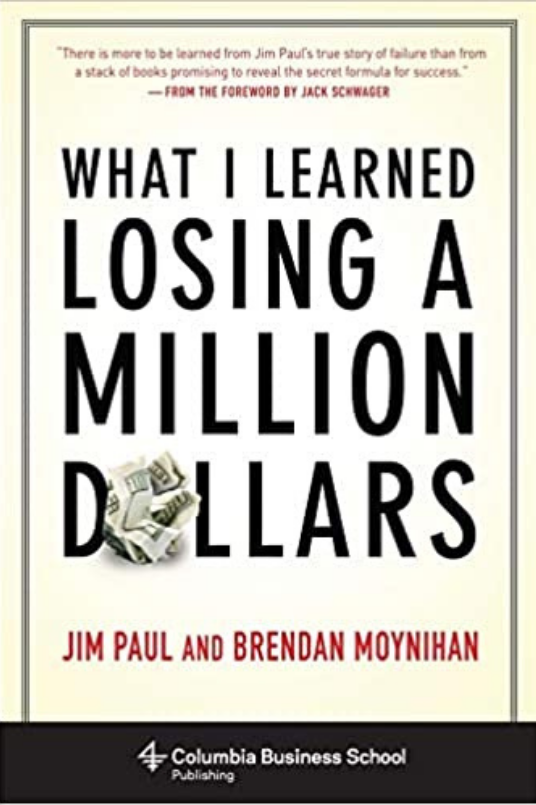Yet, most wealthy people will say the true secret to staying wealthy is to not lose the money after you make it.
There are millions of books that talk about how to make millions of dollars. But not many talk about how to lose money.
This one does. And it does it in a way to help you avoid doing so.
A great read for anyone who wants to make, and keep, millions of dollars.
Flow: 5/5
Actionability: 4/5
Mindset: 4/5
Some of My Highlights:
“Trading, as far as I know, is the only endeavor in which the rank amateur has a 50/50 chance of being right.”
“What winning traders share, however, is that they all understand that losing is part of the game, and they all have learned how to lose.”
“Books can generally be categorized into one of three groups: education, entertainment, or reference.”
“…there are as many ways to make money in the markets as there are people participating in the markets, but there are relatively few ways to lose money in the markets.”
“Success always obsoletes the behavior that achieved it.” – Peter Drucker
“People fail for the most part because they shoot themselves in the foot. If you go for a long time without shooting yourself in the foot, other people start calling you a genius.”
“…smart people and wise people. Smart people learn from their mistakes and wise people learn from somebody else’s mistakes.”
“My involvement with the country-club set changed my perspective in the world and society. If I hadn’t been involved, I never would have known about the nicer things in life.”
“The whole time I had been working, my parents forced me to put 10 percent of whatever I made in a savings account that they controlled.”
“All I did was figure out the rules of the game were and then followed them.”
“I was well dressed for just about any business environment, but on the floor I was extremely well dressed.”
“Anytime you see a committee of more than ten, it isn’t the real committee. There’s a subcommittee somewhere making the decisions.”
“I had only been in town six months, and I was elected because I had presence, wore a vest and $80 shoes, knew a lot about the markets, and knew a lot of people in the industry.”
“Memorizing clichés is easy; grasping their underlying principles is more difficult.”
“The American Heritage Dictionary defines ‘psychology’ as the study of the mental processes, behavioral characteristics, and emotions of an individual or group.”
“Emotionalism is decision making based on emotions.”
“In other words, a loss is objective when it is the same for me, you, and anyone else. The loss is subjective when it differs from one person to another, when it is entirely a personal experience.”
“Losses from continuous processes are much more prone to become internalized because, like all internal losses, there is no predetermined ending point.”
